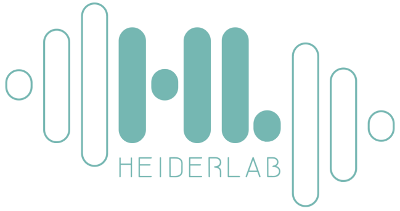CORona Drug InTEractions database
Target-Centered Drug Repurposing Predictions of Human Angiotensin-Converting Enzyme 2 (ACE2) and Transmembrane Protease Serine Subtype 2 (TMPRSS2) Interacting Approved Drugs for Coronavirus Disease 2019 (COVID-19) Treatment through a Drug-Target Interaction Deep Learning Model
Yoonjung Choi, Bonggun Shin, Keunsoo Kang, Sungsoo Park, Bo Ram Beck
Abstract
Previously, our group predicted commercially available Food and Drug Administration (FDA) approved drugs that can inhibit each step of the replication of severe acute respiratory syndrome coronavirus 2 (SARS-CoV-2) using a deep learning-based drug-target interaction model called Molecule Transformer-Drug Target Interaction (MT-DTI). Unfortunately, additional clinically significant treatment options since the approval of remdesivir are scarce. To overcome the current coronavirus disease 2019 (COVID-19) more efficiently, a treatment strategy that controls not only SARS-CoV-2 replication but also the host entry step should be considered. In this study, we used MT-DTI to predict FDA approved drugs that may have strong affinities for the angiotensin-converting enzyme 2 (ACE2) receptor and the transmembrane protease serine 2 (TMPRSS2) which are essential for viral entry to the host cell. Of the 460 drugs with Kd of less than 100 nM for the ACE2 receptor, 17 drugs overlapped with drugs that inhibit the interaction of ACE2 and SARS-CoV-2 spike reported in the NCATS OpenData portal. Among them, enalaprilat, an ACE inhibitor, showed a Kd value of 1.5 nM against the ACE2. Furthermore, three of the top 30 drugs with strong affinity prediction for the TMPRSS2 are anti-hepatitis C virus (HCV) drugs, including ombitasvir, daclatasvir, and paritaprevir. Notably, of the top 30 drugs, AT1R blocker eprosartan and neuropsychiatric drug lisuride showed similar gene expression profiles to potential TMPRSS2 inhibitors. Collectively, we suggest that drugs predicted to have strong inhibitory potencies to ACE2 and TMPRSS2 through the DTI model should be considered as potential drug repurposing candidates for COVID-19.
Source: PubMed
Related molecules
Related interactions
| Target | Target affiliation | Drug | Type | Result |
|---|---|---|---|---|
| Target | Target affiliation | Drug | Type | Result |
| Name | Synonyms | Genes | Origin |
|---|---|---|---|
| Name | Synonyms | Genes | Origin |
| Name | Synonyms | PubChem | DrugBank | RCSB PDB | ATC |
|---|---|---|---|---|---|
| Name | Synonyms | PubChem | DrugBank | RCSB PDB | ATC |
| Title | Authors | DOI | Source | Article type | Date |
|---|---|---|---|---|---|
| Title | Authors | DOI | Source | Article type | Date |
| Title | Status | Phases | Start Date | Prim. Comp. Date | Comp. Date | First Post. Date |
|---|---|---|---|---|---|---|
| Title | Status | Phases | Start Date | Prim. Comp. Date | Comp. Date | First Post. Date |
CORDITE (CORona Drug InTEractions database) collects and aggregates data from PubMed, MedRxiv, BioRxiv, ChemRxiv and PMC for SARS-CoV-2. Its main focus is set on drug interactions either addressing viral proteins or human proteins that could be used to treat COVID. It collects and provides up-to-date information on computational predictions, in vitro, as well as in vivo study data.
The information provided is for research only and we cannot guarantee the correctness of the data.
Please contact dominik.heider@uni-muenster.de for further information.
Programmable access
There is an open API for access programmatically to the database. The API will print a JSON output:
- Interactions
https://cordite-api.uni-muenster.de/api.php?action=list&table=interaction
- Targets
https://cordite-api.uni-muenster.de/api.php?action=list&table=target
- Drugs
https://cordite-api.uni-muenster.de/api.php?action=list&table=drug
- Publications
https://cordite-api.uni-muenster.de/api.php?action=list&table=publication
- Clinical trials
https://cordite-api.uni-muenster.de/api.php?action=list&table=clinical_trial

